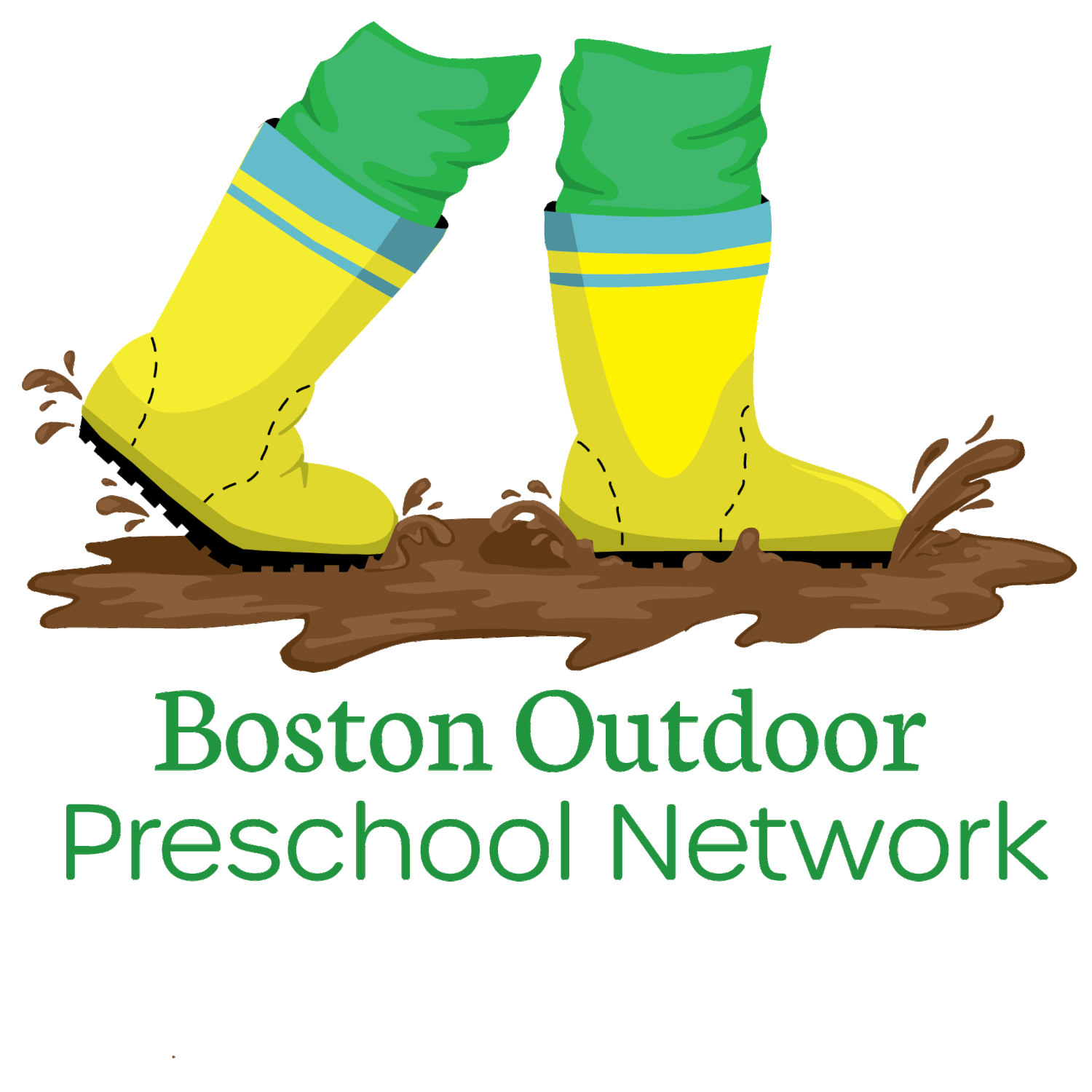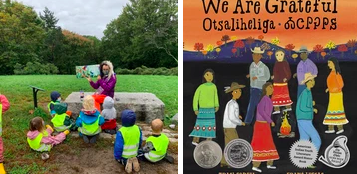Learning from Stewards
As a nature school, we benefit from and impact the land we play and learn on, so we recognize the importance of teaching BOPN children about Indigenous cultures and history in a meaningful, developmentally appropriate, and culturally responsive way. Since the first weeks of school, we always had some books out by and about various Indigenous tribes. Young children are categorizing everything to try to make sense of it (this is part of why some children state something is a "boy thing" or a "girl thing"-- they are trying to make sense of something by categorizing it), so it is important to create distinctions between the tribes we learn about, to avoid mistaking all Indigenous people as being the same. One way we do this by informing the children which tribe the author, characters, or story are from.
The children showed significant interest in Fry Bread and We Are Water Protectors. Children's literature is often where emergent curriculum ties in so well with learning about different cultural ideas, values, and practices. We took their interest in Fry Bread (and their love for using food and cooking in imaginative play) and used index cards to make our own "recipe cards" for meals that are special to our family, and cups, bowls, pinecones, and hickory nuts that we can pretend to make these meals with.
Since we have begun doing our land acknowledgement at our gratitude circle daily, we felt it was important to share stories of the Massachusett tribe, whose land we are on. With young children, it is important to show Indigenous people in the modern day because young children have a difficult time understanding things that happened a long time ago (this is why preschoolers will often state something that happened two years ago as happening "yesterday"). Also, many schools in the United States has erased the true history of colonization and the existence of Indigenous people, so we find it important to counteract that. It is important to learn about Indigenous people whose land we are on, because it makes it more meaningful to understanding the history and current context of our land and cultures.
Since we could not find any children's books on the current, Massachusett people, we found a recent news article and I wrote a short "book" for the children. The PDF is here: https://drive.google.com/file/d/1Irl0pQo1SS_cVck5ZfYLdm7CYU9JFxEX/view?usp=sharing We tied this into their interest in the book We Are Water Protectors, and had a prompt in our Floorbook where the children shared ways that they can be stewards of the Arboretum. This book also introduced the children to environmental issues and natural science vocabulary, such as "erosion".



